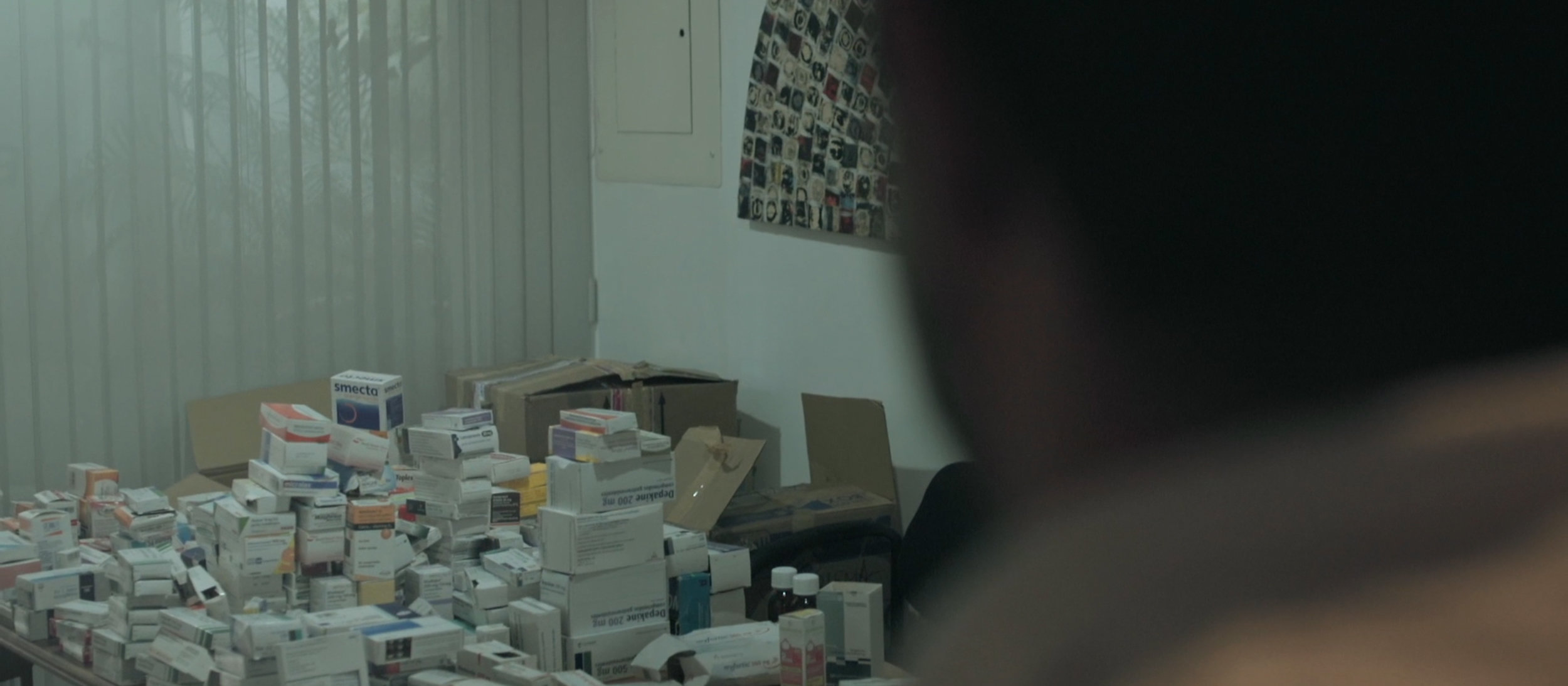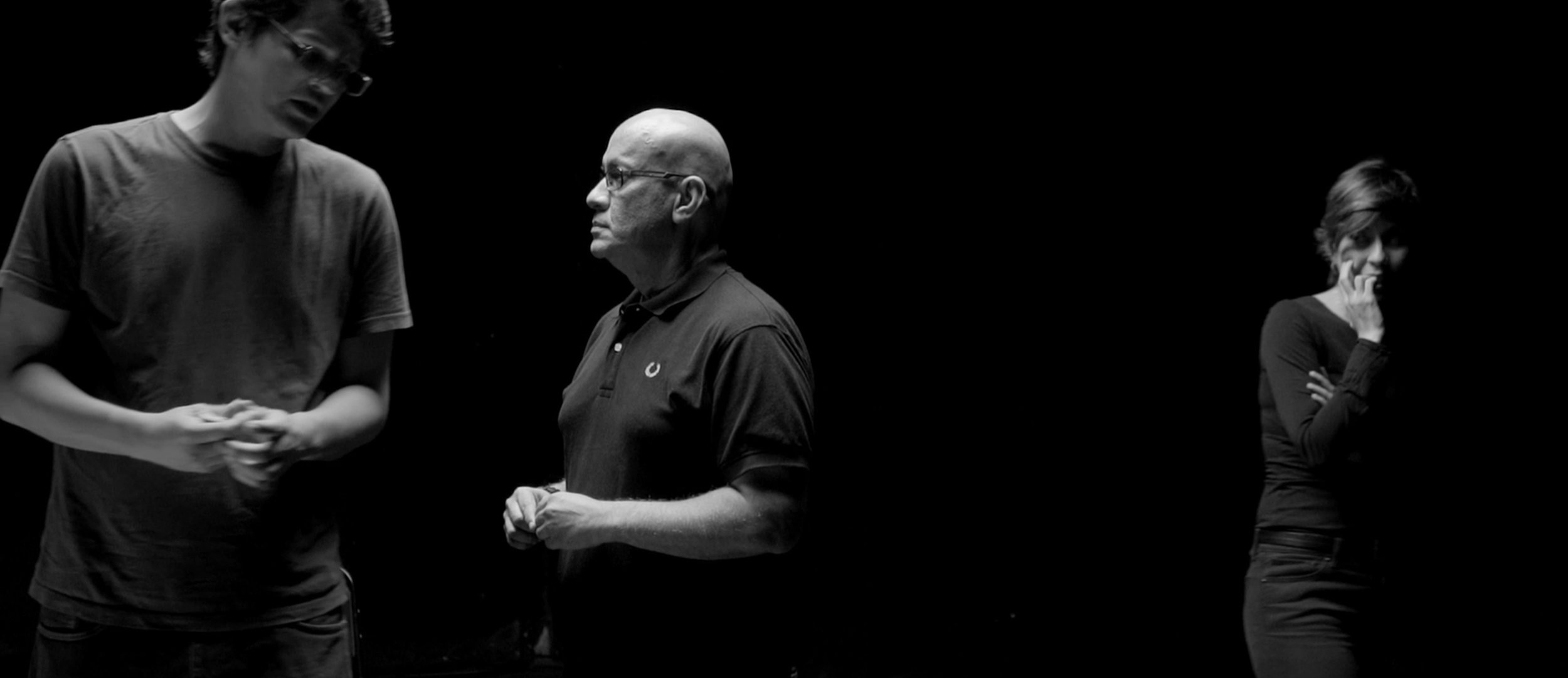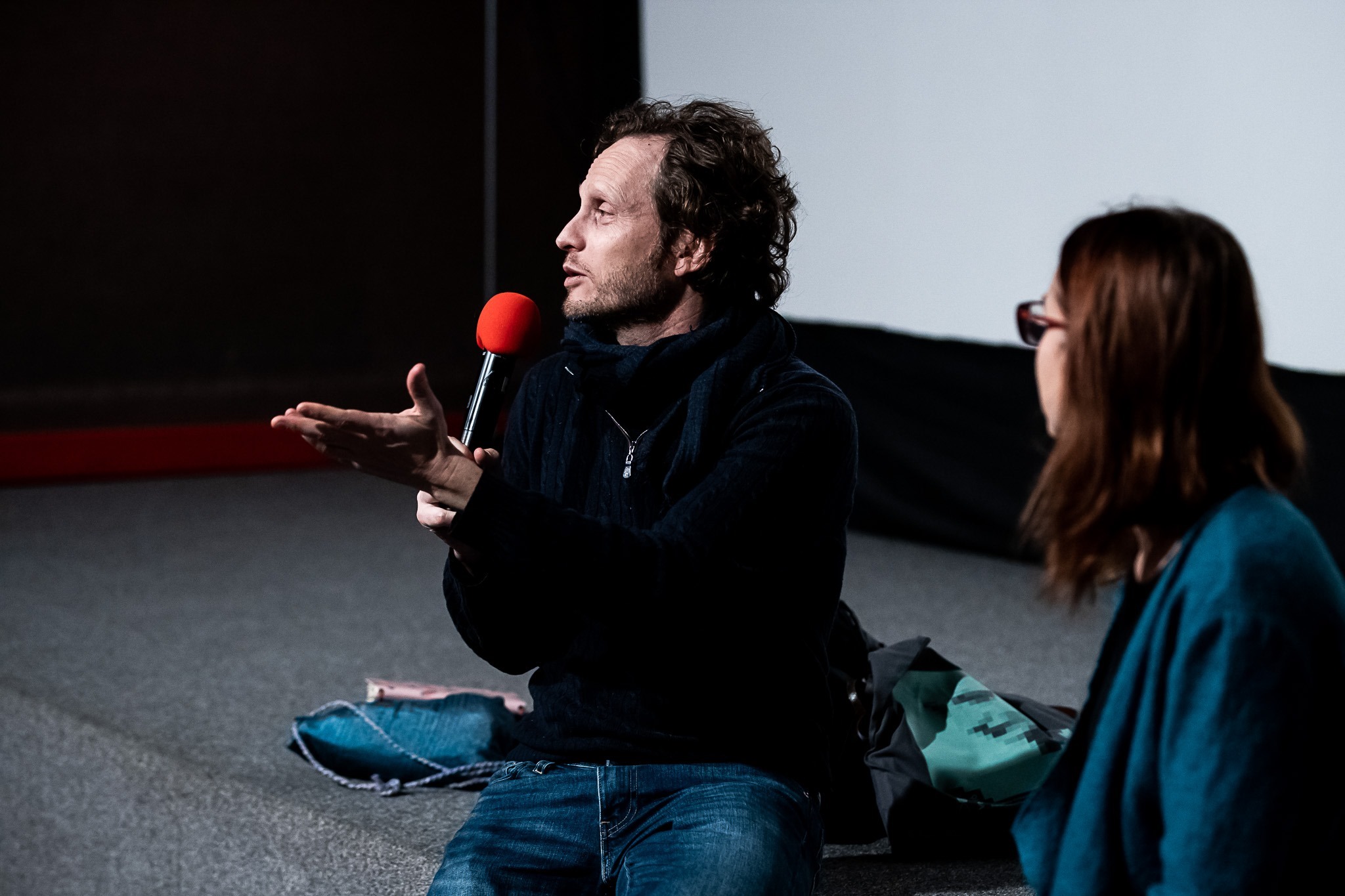
Awarded with the title Best Film at both One World in Brussels (2019) and Mostra Ecofalante Sao Paolo (2019), and also a winner of DOK.HORIZONTE Dok.fest München (2019), the movie is depicting the current shocking circumstances while safeguarding its protagonists with great care in the most humane way– showing fragility appear in all layers of life; from personal decisions to human relations and in the end, the total disfunctioning of a country.
How did you get in touch with this public health emergency?
I am from Venezuela, I grew up there and I was living there when I did the film. I was just living in a country that was in a free fall, in a complete collapse, not just the healthcare system, but all public services. But I felt that I wanted to focus on one aspect, and I thought the collapse of public healthcare was a very painful aspect of the crisis so that’s why I chose that.
Did you actually get personal experiences with that or it was just your choice to choose the healthcare?
It was a choice. I’m lucky to have family in other countries, in Europe, and so I could travel if I needed something. But I did see people around me who were having difficulty finding very basic medicine that were not available anymore.
Just living in the country and seeing that… Film is a way to portray a certain time, even if it’s just in a way that is not perfect - but it’s your impressions that you have in that moment which you can capture with a film. For me, it was important to somehow capture the moment - that specific moment. And for me, the medium is film, I don’t write, I don’t play music, I don’t do other things, I don’t paint, so that was my way of capturing that moment through film.

photo: Esta Todo Bien
You mentioned that you understood that this film would be like a „preach to the converted ones”. So you already knew it, but did you want to raise awareness with it as well?
My priority was to make a film with this subject matter. Of course, I want to raise awareness and make people show what is happening in Venezuela in a way that is in opposition to the official version which is basically propaganda. That was important for me.
But are you able to show it in Venezuela?
In Venezuela, no one dared to show it for a very long time. Then there was a festival this year of Venezuelan film, where they do not usually show documentaries, but they screened it one time. It is not competitive and they were only able to screen it one time but it was not dangerous in any way because there weren’t many screenings. It was just one time and then it was over. It was also screened at another time in another city and I think hopefully it will be screened again, but it’s always single events, one moment it is screened and then it is taken away.
But does the press cover it?
The online press has covered some of it, but there is no other medium, the television is all government-controlled, and also about print media – there is almost no more print media that is independent, because they do not get printing paper.
When you were doing the movie and since after it was released, did you get any threats or attacks?
No, nothing. No threats, no attacks, nothing.
So it is just not giving opportunity for showing.
I think maybe because in a way documentary film is almost like a niche, unless it has not been in the mainstream media (at least not in Venezuela), it is maybe not perceived as a threat in that sense - so far, but that can always change. Also I think maybe it has not crossed the radar or maybe they do not care, they do not see it as a threat. I mean, it’s not the same as something that is for example screened in Venezuelan homes - then it would be a problem for them.
But your film is getting more internationally known, it receives awards, maybe the word about it will go back to Venezuela...?
Maybe, I don’t know. I’ve been back to Venezuela to film and I haven’t had any problem.
You used psychodrama in your film and you mentioned previously how the film plays with the ’concept of truth’, so that if protagonists would get attacked then their role could be interpreted as a performance. But then also psychodrama reveals an even greater truth to people of their own experience…
Well, thank you for asking. What was happening at the time as I was seeing this health crisis and the people, including the protagonists, how they were struggling - and not just them, they were representing what was going on all over the country – at the same time the Venezuelan health minister was on an international PR tour claiming how wonderful the Venezuelan health system is. The disparity between the two versions or representations of reality was so big that I wanted to address it in the film. Maybe an easy way would have been to juxtapose the observational footage of the protagonists with archive footage of state TV, the official reports by the government claiming the opposite, to just show the disparity, that would have been very easy. However, I somehow felt like that was not the way I wanted to take the movie to. So instead because it is also a way of exposing people like liars or idiots which I did not want to do, I thought it would be much nicer to play with the idea of showing what the characters are living, but seeing what the government is saying means basically that if the government is right, the protagonists are really great actors and maybe the whole nation, the people are all great actors, like the whole country is a big stage. So I said to the protagonists: let’s bring it on a stage, your reality, let’s play! Of course it is an idea, you never know if it is going to work or not, but it was also a way of creating a structure for the film, getting close to the characters in a different way. It was also therapy for them.
You said that there was a second session of psychodrama which did not get in the film?
We did two sessions, both were filmed. There was a one year difference between the two sessions. In the end we just ended up using one, the first session.
Why?
Well, the main reason is while we were doing the second session, the stage where we were filming was not soundproofed, and right next door there was a political rally by Nicolas Maduro. The loudspeakers were really loud and we could hear Maduro’s voice over the psychodrama. So we joked that he was boycotting our film, but he had no idea that we were there, it was just a coincidence. But I also feel like it might have been a bit confusing mixing both sessions and I think I’m happy that we just used one. In the end, even though we knew we would not be able to use the second one for the film, we did the whole session which lasts for several hours, we did it for the characters, because for them it was really good.
Almost like a healing process?
For them, yes.

photo: Esta Todo Bien
We know that unfortunately Rebeca passed away. What can we know about the other protagonists?
Efraím is living in Chile, he managed to escape finally, thanks to a film festival where the film was screened, at Movies that Matter in the Hague, sponsored by Amnesty International. They had him flying to the Hague, and when he arrived at the airport he said he was not going back to Venezuela. So they arranged the ticket, they asked him where did he want to go, so they got a ticket for him to Chile, he arrived there and now Chile is going through a hard time too, so…he at least got out of Venezuela which for him was very important, because when he started speaking out about what was going on, he lost his job at the hospital, he was kicked out of university, he was just barely surviving.
Francisco is living in Miami, finally he moved there with his family. He got a lot of threats, not because of the film but because of his activism.
Mildred is still in Venezuela, she is doing ok, and she is actually going to receive a prize today at the French embassy in Venezuela where the film is getting a prize. She is going there to receive it and speak tonight, I think more or less the same time as the screening we have.
Rosalía, the lady of the pharmacy closed the pharmacy. Her daughter is living in Canada, she has been able to visit her daughter, fortunately she has a daughter, like many Venezuelans who have family abroad, they get remittances, so they can live of that. Similarly like in Cuba, they live from the money they get from the relatives who work in other countries.
We are seeing Efraím in the movie for a long time as he is the young hero who is still resisting, and we also see his friend who is leaving, but it’s not in any way judgmental that he left. Were you focusing on that?
No, it was just the reality that a lot of people were leaving especially in that year, and the following year after we filmed even more. Four million Venezuelans have already left and they are projecting that it is going to rise to eight million next year, making it the biggest refugee crisis in the world, even bigger than the Syrian crisis, in a country that is not at war. So when we were filming it just happened that he who was leaving was actually the brother of Efraím. We do not explain it in the film, we just see him as someone close to Efraím, no one can know he is his brother. We see that he is someone close, because he is crying, we see a farewell scene, but it does not matter if it is a friend, a brother, ora son – it is someone who is leaving.
It is a very strong moment.
Thank you. We just thought that was such a true moment for Venezuelans, to which they can relate to, because it is happening in all of the families, so we thought it was important for the film to include it. Of course we do not judge the person who is leaving, we do not judge the person who is staying – how can you judge that really? It would be really unfair to judge it from the outside, it is such a personal decision if you leave or you stay. You are right, Efraím is the one who is fighting, I think there is one pivotal moment, when he goes to the resistance movement, to the people fighting on the streets, and he is looking at it from a distance, like „do I join it”? We do not really know what he is thinking. But he is a doctor, he is not a fighter, you know, not a soldier, why should he go and risk his life? You see him as he just turns around and leaves. And the next thing is that he calls his father saying he is leaving. So he realizes probably (I mean I cannot know for sure), it is that moment he realizes „I can’t change this. This is bigger than me. I can’t change it, I can’t stay here, because I can’t pursue my career, I can’t work, I can’t live of my work.” So what is the only option for him? He is not a man of faith like the other characters. Their refuge is faith, they go to church. For him it is to leave the country too, like his brother did before him.
I think one of the big obstacles was of course was to be careful where we would film and what we could film, for example not to film in public spaces too much. We were limited by that because of previous experiences: a good friend of mine was put in jail in Venezuela for making a documentary film (also because it was a subject that is sensitive for the government), so we had to be careful about where we were filming.
What would you have filmed if there was no limit?
Maybe I would have shot more exterior scenes with the characters than I did. And maybe shooting more in the hospital with Efraím - we could only film there one time,. There were security cameras so we had to film from the blind spot, then I was kicked out by soldiers with bayonets so I was very limited in that sense. But it was still possible to do it. Sometimes obstacles are good because they force you into making certain choices, right?
Other than that, it’s also always in every documentary film, getting the trust from the characters, that they let you film them in intimate and personal moments. In this case I was very lucky, the characters were very generous in that sense and trusting from the beginning.
I think one obstacle if you ask me in Venezuela, is that when you film in public spaces (not the protagonists, they were ok about that) people are generally very distrusting of cameras, also because there has been a lot of propaganda showing that anyone criticising the system is immediately an enemy, an enemy that needs to be basically crushed.

photo: Zoltán Adrián
Todo está peor? The UN Human Rights Council has launched an investigating unit to report on Venezuela’s human rights situation which will conclude in 2020 - do you think things are about to change?
No, I don’t think so. The only thing that has maybe changed since I did the film is that the government recognizes there is a crisis. Before, it was in denial, now it recognizes it because there are US sanctions, so they can blame the crisis on someone. Before, they had no one to blame. But they don’t do anything. They have accepted humanitarian aid because there was a lot of international pressure. They accepted international aid from the Red Cross - that’s it. Other than that - the situation of the health system is much worse compared to when I did the film.
Nóra Ilona Aujeszky